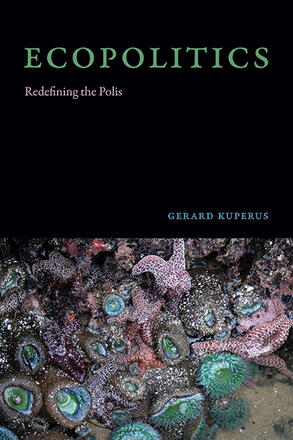
Ecopolitics
Redefining the Polis
Alternative formats available from:
Analyzes the different feelings, drives and instincts we have inherited from other species, to suggest a new understanding of ourselves as part of an eco-political community.
Description
Against the idea of social contract theories that suggest humans invented the political, Gerard Kuperus argues that we have always been political and that our species came into existence in a world that was already political. By studying the rich social and political lives of other animals, Ecopolitics provides suggestions for how to think and feel differently about ourselves, our relationship to other people, and the places and beings around us. Kuperus suggests we understand ourselves as part of an ecopolitical community consisting of humans and other living beings as well as inanimate objects. By recognizing nature itself as utterly political and seeing ourselves as a part of this larger political unity, we can come to face the real challenges of our times. This means that we are not simply putting ourselves in nature as we are. We are also changing who we are.
Gerard Kuperus is Professor of Philosophy at the University of San Francisco. He is the author of Ecopolitical Homelessness: Defining Place in an Unsettled World.
Reviews
"In offering a powerful argument for the political relevance of the relationship between the human and nonhumans, Ecopolitics constitutes a book that both merits discussion and will hopefully spark many experiments in political and social activism." — H-Net Reviews (H-Environment)
"Kuperus promotes a minimalist political community in which cooperation and mutual aid fostered by empathy both define group membership and transform the relational personal identities of its members. This is a timely and interesting alternative narrative to the right-wing Populist demagoguery of the Hobbesian state of nature, which supports possessive individualism and inspires contractarian society, historically separating people from the natural world … Highly recommended." — CHOICE
"This engaging interdisciplinary work offers a new, robust view of the political realm, one that includes the wide and differentiated chorus of non-human beings. Expanding and locating a notion of the polis (civic and biological community) into evolutionary time, it forges a novel and provocative vision of 'ecopolitics' rooted in collaboration—a shared sense of the good, and forms of interspecies mutual aid." — David Macauley, coeditor of The Seasons: Philosophical, Literary, and Environmental Perspectives